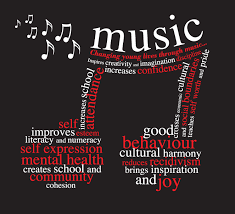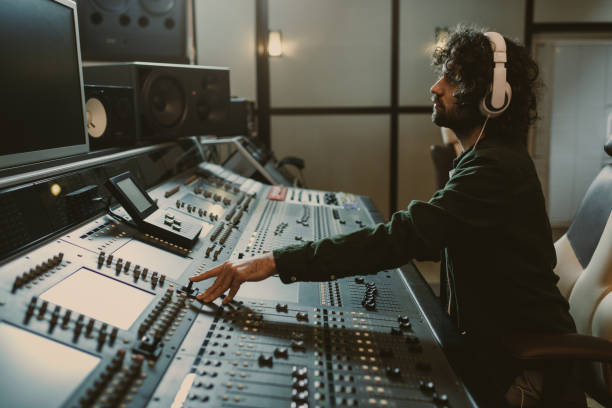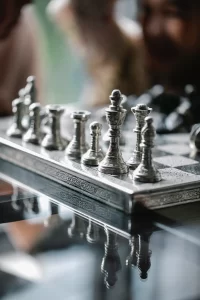The Importance Of Music In Human Life
Music is an art form. Music is when different sounds are combined or mixed to create a pleasant new sound to the ear. Music comes from the Greek word Mousike which means “the art of muses”. Muses were the goddesses of music, poetry, and art in ancient Greece. Music can be described as two things. One is the sound made by the musical instruments, and the other is the singing. A musician is a person who creates music.
Music cannot be classified for every sound. One sound can be either noise or music. Music is a pleasant sound to the ear, but noise is not. A sound that is music to one person might be considered noise. The noise of the elderly may be influenced by loud music, such as hip-hop or rock music.
Origin of Music
Many theories exist that can help us understand when and where the music originated. Some historians believe music existed long before man was born. Six eras have been defined for music. The musical style that has changed is what defines each era. These musical styles have influenced the music we now listen to. The middle ages or medieval were the first era. This age is the birth of musical notations and polyphony. At that time, monophonic and polyphonic musical styles were very popular. The new Christian churches founded universities that governed the future of music. The time was when the music known as Gregorian chant was compiled and codified.
Organum music was also developed during his era. Guillaume de Machaut, a great name in music, was born in this era. The Renaissance followed this era. Renaissance is a term that means rebirth. This period was between CA 1420 and 1600. The spread of sacred music began in schools at this time. Schools were the first to begin to compose music. This era saw the rise of instrumental and dance music. In the late Renaissance period, English madrigal was also flourishing. Master composers such as William Byrd and John Dowland created this type of music. The Baroque age followed, which began in CA in 1600 and ended around 1750. Baroque comes from the Italian Barocco, which means strange, bizarre or unusual. The variety of musical experiments that were performed during this age is what makes it unique. This was the age when opera and instrumental music were developed. Johann Sebastian Bach was the greatest music composer during this time. The classical age followed, which began roughly in 1750 and ended around 1820. From the heavy, ornamental music of the baroque age, the music style evolved into simpler melodies. The primary instrument that composers used was the piano. Vienna, the capital of Austria, became Europe’s musical centre. Vienna was the place where composers came from Europe to learn music. This era’s music is known as the Viennese music style. The Romantic era, which began in 1820 but ended in 1900, followed. Music composers of this era added deep emotions to their music. Artists used music to express their emotions. Late Romantic composers dominated the late nineteenth century. The music changed as the century turned. The twentieth century brought music. Many musical innovations mark this period. There were new types of music created. The development of new technologies improved the quality of music.
Music
Music is more than entertainment. Music is more than entertainment. Music is an integral part of our lives.
- Music is Creative: Music Is the Key to Creativity. Music can improve our minds. Music makes our minds more creative and innovative. Music is a way to fill our minds with art. Every great invention relies on creativity, imagination, and art. Music can sometimes give us these talents. Music can improve our comprehension. Listening to a song can help us understand the lyrics. We attempt to understand the meaning of the song. A person listening to instrumental music is using his right brain without using words to understand what the musician is trying to convey with his music. When we play an instrument, we use a tone that reflects our thoughts or emotions. This is how our brains communicate our thoughts using music and not our ability to speak. Our minds become more creative when we think about music and try to understand it. A creative mind can lead to many useful and discoveries.
- Music makes learning more enjoyable: Music is an effective tool to improve your memory. As we all know, learning a song is easier than learning a syllabus. Because our minds enjoy music, this is why we can learn songs so quickly. It retains whatever music is enjoyed by its mind. This is because the moments we have enjoyed in life are kept in our minds forever. We must enjoy learning something. This is where music comes in. The teachers first teach the poems to the students when they start schooling or preschool. The teachers teach the poems first to the children. It is fascinating and keeps the students’ attention. They are more enjoyable because of the music. This may be why we all remember the poems taught to us as children. They will still be with us in the future. Multiplication tables can be taught to students through music. Students enjoy singing the multiplication tables in song form and retain them in their minds.
- Music can play with our emotions: Music acts as a stress reliever for most people. Music can make us feel calm and relaxed. All music is not good for us. It all depends on what kind of music we are listening to. Music can instantly change your mood. We enjoy dancing to dance music and can even dance along with it. If someone suddenly puts a sad song on the music rack, it can change our mood. The songs make us feel emotions. Music can cause mood swings. It is important to listen to music that lifts us when we feel down. It is important to listen to energetic music, not sad or emotional when we feel down. Music can be a great way to forget bad memories, at least temporarily. People who are feeling depressed can also use music. Music can help them feel happier, less stressed, calmer, and have a greater sense of enjoyment. Music is a stress reliever.
The Importance Of Music In Children’s Life
Music is not just for adults, and music has also been a benefit to small children.
- Music helps children develop their language skills: Songs, poems, and songs help children develop their language skills early. Before they can read, write or speak, children recognize the sounds of voice, tones, and words. Children’s minds are influenced by the words in music, whether it is songs or poems. They begin to understand the meaning of music. They begin to visualize what is being sung. They attempt to decipher the meaning of the words. They learn music as a language. They learn to speak the language of music.
- Music improves listening skills in children: Children learn to listen to music and develop their listening skills. Children can distinguish between different voices and tones by listening to music. It helps to understand the meaning of loud, soft, or heard voices. They learn to recognize the moods and tones of different people through music.
- Music incites movement in children: Both music and movement are partners. Children respond to music by moving to it. This could be shaking their heads, tapping their feet, or using their hands to perform actions. Children learn coordination and coordination by performing movements while they listen to music.
- Music Therapy – The idea of using music to heal someone is known as music therapy. Music therapy can benefit patients with cancer, children with ADD, and patients suffering from muscle pain or depression. Music therapy has been used in many hospitals.
Research has shown that music can make our brains vibrate in tune with the beats. Listening to fast, energetic music can increase brain activity and sharpen concentration. Listening to slower, more peaceful music can relax our minds and help us feel calmer. Changes in brain waves can also cause changes in body function. Music directly affects the nervous system, which can affect our heartbeat rate and breathing rate. Music can help the doctor manage chronic stress and promote relaxation.
Conclusion:
Music plays a vital role in our lives. It helps us develop our brains and other abilities. It is a great way to teach children skills and develop their imaginations. Music therapy can help with the treatment of certain chronic and dangerous diseases. We need to be cautious about the music we listen to. Some songs contain abusive language and rude language that children should avoid. This will make it difficult for them to remember the lyrics, which can cause them to retain them, which is not good for them. Music is beneficial to all and should be a part of everyone’s daily lives.














Post Comment